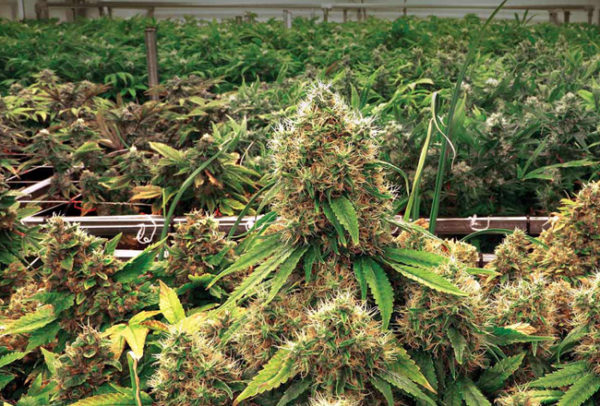As an attorney dedicated to the cannabis industry, I field a variety of questions from multiple people on a daily basis. “Can you help me get a cannabis license?” (Yes). “Can I legally grow my own cannabis?” (Not yet). “What”™s the best strain for [insert condition]?” (Ask a doctor, consult the Internet ”” I”™m just a lawyer).
 One group I don”™t hear from frequently enough is everyday employers who operate outside of the cannabis industry. Despite their apparent disinterest in the new green economy, these employers need to understand state adult-use cannabis laws to ensure they”™re not running afoul of them.
One group I don”™t hear from frequently enough is everyday employers who operate outside of the cannabis industry. Despite their apparent disinterest in the new green economy, these employers need to understand state adult-use cannabis laws to ensure they”™re not running afoul of them.
Here”™s what they should know:
What”™s legal right now under the new adult-use cannabis laws?
In March 2021, New York state passed the Marijuana Regulation and Taxation Act (MRTA), which immediately legalized the possession and use of small amounts of cannabis and cannabis products for adults 21+.
Connecticut similarly legalized possession and use of small amounts of cannabis and cannabis products for adults 21+ as of July 2021, when its Responsible and Equitable Regulation of Adult-Use Cannabis Act (RERACA) took effect.
On the horizon, each state will develop a regulated cannabis marketplace for the cultivation, manufacture, and retail sales of cannabis, and adults 21+ will be permitted to grow a small number of cannabis plants for their personal use.
Can I fire my employees for off-hours, off-site cannabis use?
Not in New York. Under New York labor law, an employee is protected from job discrimination for cannabis possession and use that is outside of the employer”™s premises, beyond work hours and does not involve the employer”™s property.
Connecticut has taken a wildly different approach than New York. Starting in July 2022, an employer can take action against employees for their off-hours, off-site cannabis use.
To do so, the employer must provide employees and prospective employees with a written policy regarding the prohibition of cannabis and the potential adverse effects on employment due to a policy violation. Cannabis use or possession that occurs following the dissemination of this policy enables the employer to terminate employees or rescind employment offers. Registered medical cannabis patients in Connecticut have protected status and are not subject to these outcomes.
What if I work with the federal government or have employees who are in safety-sensitive positions?
Employers in all states are obligated to maintain zero-tolerance policies toward cannabis use when they receive federal funding, operate under federal contract or have employees in safety sensitive positions. Nothing trumps federal law, and cannabis remains illegal under federal law, even in the case of medical cannabis patients.
Under RERACA, certain Connecticut employers have carte blanche to discipline and terminate employees for cannabis use and possession (regardless of any federal involvement or the presence of a written policy). These “exempted employers” fall into the categories of mining, utilities, construction, manufacturing, transportation, educational services, health care services, social services, justice and public safety activities, national security and international matters.
Similarly, employers with “exempted employees” are nearly limitless in their ability to discipline and terminate certain persons for cannabis use and possession; RERACA identifies these exempt positions as firefighters, EMTs, police officers/law enforcement, commercial drivers, persons in construction safety, persons who require certain security clearances, persons funded in whole or part by a federal grant and persons providing care to children, patients or vulnerable people.
As a catchall, RERACA allows employers to make their own determination as to whether an employee has “the potential to adversely impact the health or safety of other employees or the public,” and if the answer is yes, they are allowed to categorize such employee as an exempted employee.
Employers should discuss the nuances of the intersection of employment and adult-use cannabis laws with their legal counsel, as this article is for informational purposes only and should not be a substitute for legal advice.
 Cristina Buccola is an adjunct professor at Elisabeth Haub School of Law at Pace University and chief counsel of CB Counsel PLLC, a firm dedicated to exceeding the needs of clients in and around the cannabis industry. She is also cofounder of Green Empire Licensing LLC, an entity that writes cannabis license applications for East Coast and emerging markets. To connect with CB Counsel, contact hi@cbcounsel.com.”‹
Cristina Buccola is an adjunct professor at Elisabeth Haub School of Law at Pace University and chief counsel of CB Counsel PLLC, a firm dedicated to exceeding the needs of clients in and around the cannabis industry. She is also cofounder of Green Empire Licensing LLC, an entity that writes cannabis license applications for East Coast and emerging markets. To connect with CB Counsel, contact hi@cbcounsel.com.”‹
















